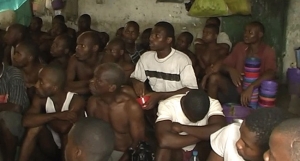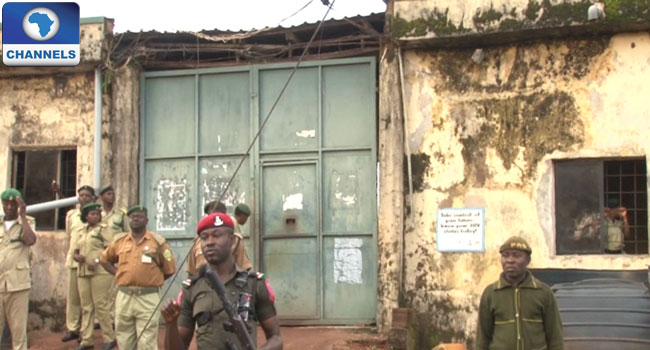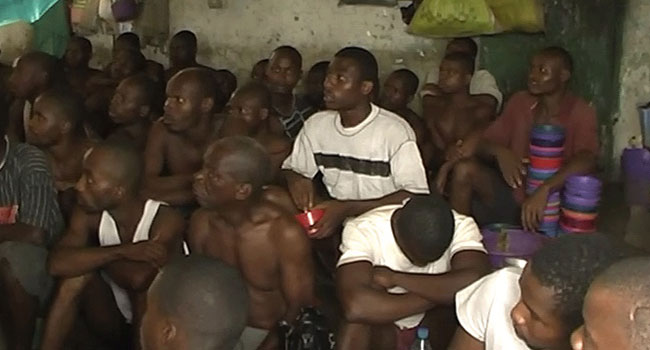
Lawmakers reached the decision after deliberations on the need to decongest the prisons, reform them and also ensure that they serve as a place of reformation for inmates and not a place to groom criminals.
Their focus was the need to explore the rehabilitation of the inmates through Agricultural Training Programmes of the Nigerian Prisons Service, a motion raised by Senator Mao Ohuabunwa.
Senator Ohuabunwa pointed out that savings made from proceeds, payable at point of inmate disengagement from prisons, could serve both the reformed prisoners and the nation.
Senators Bayero Nafada and Emmanuel Bwacha also spoke in support of the motion.
They reminded other Senators that the prisons were for rehabilitation.
Senate President Bukola Saraki also reminded the Senators that the Senate recently debated a bill on Prison Reforms and that the bill would comprise these matters.
After debate on the issue, the Senate resolved to invite the Nigerian Prisons Service to brief the Committee on interior on its programmes for rehabilitating prison inmates.
Common Situation
During deliberations on the Prisons Reform Bill, the Senate had decried the situation in Nigeria’s major Prisons, describing it as appalling.
It pointed out that the prisons needed improvement, something that a bill for an Act to repeal and re-enact the Prison Act may be addressing at the completion of the process.
The bill, which was brought before the Senate for its second reading on Wednesday, was sponsored by Senator Shaba Lafiagi. He also led the debate on the bill.
An ex-convict, Mr Kayode Williams, who advocates rehabilitation or prisoners and the nation’s prisons had in 2014 referred to the nation’s prisons as a training ground for hardened criminals and Senator Gbenga Ashafa corroborated that claim when he stressed that he was particular about the improvement and attitudinal change of inmates.

One common situation in Nigeria’s prisons is the congestion which usually makes the place unhealthy for inmates.
In Ilesa Prison in Osun State, 454 out of 582 inmates are awaiting trial, a situation that an official said was as a result of huge challenges facing the Prisons Service.
The officer in charge of the Prisons, Deputy Comptroller Ope Fanimikun, said that presenting 454 inmates for trial in 72 courts was a huge challenge for officers.
Mr Fanimikun gave reasons for the large number of inmates awaiting trials while receiving Oluwo of Iwo, Oba Abdul-Rasheed Akanbi and his team into the premises of the prison.
He said that the Prisons service had just four vehicles, the newest of which was given to the prisons four years ago.
The Deputy Comptroller sought the support of Nigerians in form of vehicles’ donation to ensure that inmates were presented for trials to decongest the prisons.
After these comments were made by the prisons official, the Nigerian government approved the sum of 3.5 billion Naira to procure 320 made-in-Nigeria vehicles to aid prisons decongestion across the country.
The approval was in response to the request in a memo presented at a FEC meeting by the Minister of Interior, General Abdulrahaman Dambazau (rtd).
General Dambazau noted that the procurement of vehicles was part of requirements needed to strengthen the criminal justice system.
He told State House correspondents after the meeting in Abuja, Nigeria’s capital, that at least 75% of an estimated 65,000 inmates were awaiting trial.
The Interior Minister also blamed their continued detention on lack of logistics and availability of vehicles to transport them to at least 5,000 courts from prisons within the country.

